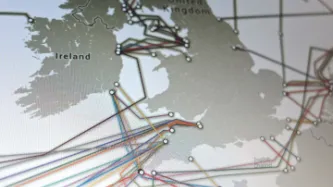Advanced Search
Content Type: Video
This case was made possible because of Edward Snowden’s disclosures in 2013, and through the combined work of Big Brother Watch, American Civil Liberties Union, Amnesty International, Bytes for All, Canadian Civil Liberties Association, Egyptian Initiative for Personal Rights, Hungarian Civil Liberties Union, Irish Council for Civil Liberties, Legal Resources Centre and Liberty.
Content Type: Press release
A joint press release from Privacy International, Reprieve, CAJ, and the Pat Finucane Centre.
Agents of MI5 and other Government bodies could be legally authorised to commit crimes under new legislation introduced today. There appear to be no express limits in the legislation on the types of crime which could be authorised.
The Covert Human Intelligence Sources (Criminal Conduct) Bill appears not to explicitly prohibit the authorisation of murder, torture, or sexual violence. Reprieve,…
Content Type: News & Analysis
*Photo by Michelle Ding on Unsplash
Pat Finucane was killed in Belfast in 1989. As he and his family ate Sunday dinner, loyalist paramilitaries broke in and shot Pat, a high profile solicitor, in front of his wife and children.
The Report of the Patrick Finucane Review in 2012 expressed “significant doubt as to whether Patrick Finucane would have been murdered by the UDA [Ulster Defence Association] had it not been for the different strands of involvement by the…
Content Type: Long Read
*Photo by Kristina Flour on Unsplash
The British government needs to provide assurances that MI5’s secret policy does not authorise people to commit serious human rights violations or cover up of such crimes
Privacy International, along Reprieve, the Committee on the Administration of Justice, and the Pat Finucane Centre, is challenging the secret policy of MI5 to authorise or enable its so called “agents” (not MI5 officials) to commit crimes here in the UK.
So far we have discovered…
Content Type: Long Read
Six years after NSA contractor Edward Snowden leaked documents providing details about how states' mass surveillance programmes function, two states – the UK and South Africa – publicly admit using bulk interception capabilities.Both governments have been conducting bulk interception of internet traffic by tapping undersea fibre optic cables landing in the UK and South Africa respectively in secret for years.Both admissions came during and as a result of legal proceedings brought by Privacy…
Content Type: Press release
The UK’s Investigatory Powers Tribunal (IPT) today notified the ten NGO claimants in a legal challenge against GCHQ mass surveillance practices that the Tribunal had mistakenly omitted information about unlawful GCHQ actives in their judgment from ten days ago . In an email to the claimants, including Privacy International, the Court admitted that in its 22nd June 2015 judgment it wrongly failed to declare that Amnesty International had been subject to unlawful surveillance…
Content Type: Press release
The Investigatory Powers Tribunal (IPT) today revealed that the UK Government Communications Headquarters (GCHQ) spied on two international human rights organisations, failed to follow ITS own secret procedures and acted unlawfully.
The targeted NGOs are the South African Legal Resources Centre (LRC) and the Egyptian Initiative for Personal Rights (EIPR). Both are leading civil liberties organisations and co-claimants alongside Privacy International, Liberty,…
Content Type: News & Analysis
Privacy International, Bytes for All and other human rights groups are celebrating a major victory against the Five Eyes today as the UK surveillance tribunal rules that GCHQ acted unlawfully in accessing millions of private communications collected by the NSA up until December 2014.
Today’s judgement represents a monumental leap forward in efforts to make intelligence agencies such as GCHQ and NSA accountable to the millions of individuals whose privacy they have violated.
The…
Content Type: Long Read
As Privacy International celebrates Friday's victory against Britain’s security services - the first such victory this century - we cannot help but feel the success is bittersweet.
After all, we may have convinced the Investigatory Powers Tribunal that GCHQ was acting unlawfully in accessing NSA databases filled with billions of emails and messages, but with a few technical adjustments the intelligence services have managed to insure themselves against any further challenge, at least in…
Content Type: Press release
British intelligence services acted unlawfully in accessing millions of people’s personal communications collected by the NSA, the Investigatory Powers Tribunal ruled today. The decision marks the first time that the Tribunal, the only UK court empowered to oversee GHCQ, MI5 and MI6, has ever ruled against the intelligence and security services in its 15 year history.
The Tribunal declared that intelligence sharing between the United States and the…
Content Type: Press release
The Investigatory Powers Tribunal (IPT) today followed its previous judgments in finding that UK security services may in principle carry out mass surveillance of all fibre optic cables entering or leaving the UK under RIPA, the 2000 law that pre-dates the modern internet.
In summary, the Tribunal in today's decision said the system of mass surveillance disclosed by Edward Snowden could in principle be lawful. But the Tribunal has asked for more submissions about whether…
Content Type: Press release
Britain's intelligence services do not need a warrant to receive unlimited bulk intelligence from the NSA and other foreign agencies, and can keep this data on a massive searchable database for up to two years, according to secret internal policies revealed today by human rights organisations.
Details of previously unknown internal policies, which GCHQ was forced to reveal during legal proceedings challenging their surveillance practices in the wake of the Snowden revelations, reveal…
Content Type: News & Analysis
From Monday 14 to Friday 18 July, the British intelligence agencies and the Ministers responsible for them will be under the spotlight in an historic case to determine whether GCHQ's mass communications surveillance activities are a violation of Britain's human rights obligations.
Privacy International, along with Amnesty International, Liberty, the American Civil Liberties Union, Pakistani organisation Bytes for All and others, have brought the case before the Investigatory Powers Tribunal (…
Content Type: Long Read
Britain's spy agency, GCHQ, is secretly conducting mass surveillance by tapping fibre optic cables, giving it access to huge amounts of data on both innocent citizens and targeted suspects, according to a report in the Guardian.
Mass, indiscriminate surveillance of this kind goes against an individual's fundamental human right to privacy. The scope and scale of this program, which monitors the entire British public and much of the world, is neither necessary nor proportionate and thus,…








